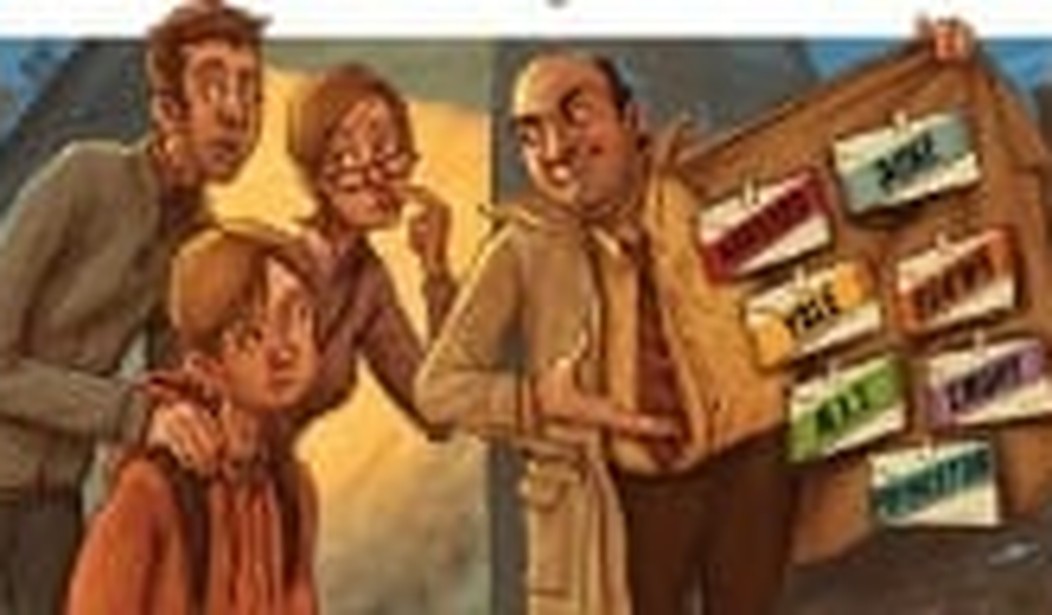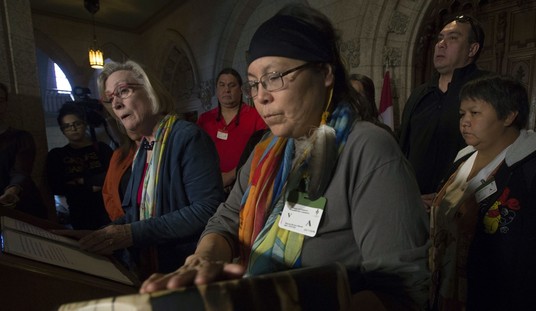I ended my first PJM piece on parenting in America with an anecdote from my brief career as an inner city teacher in Los Angeles: Out of a class of 35 students, only three parents showed up to my first year classroom’s Open House Night.
While I view this example of parental apathy as evidence of the challenges I faced trying to raise student achievement, acquaintances of mine who teach at private schools see it as my good fortune. To them, a hands-off approach to raising children is infinitely more tolerable than the hyper-parenting on display at elite schools across the country. Their position is defensible; two extremes plague our kids.
Last week’s article dealt with the first extreme: parents who are unwilling or unable to play an important role in their children’s lives. One of the primary challenges facing inner city children is the lack of two-parent homes. In a recent article in City Journal (“City Without Fathers“), Steven Malanga reveals what’s behind Newark’s epidemic violence: fatherless children. He cites statistics that show children from single-parent homes are more likely to fail in school and work and to resort to violence.
Of course, we should never diminish the role of the mother in a child’s life: There are many children being raised beautifully by single mothers. But the fact is that most single mothers (and fathers) face tremendous challenges trying to juggle the responsibilities of home and work.
The idea of juggling responsibilities leads me to the other extreme: parents who play too great a role in their children’s lives. Piano lessons, tutoring, art classes and vacations to Europe can all be very enriching. But they become nothing more than highlights on a resume when they are forced upon a child whose life is completely controlled and scheduled. Moreover, we all know that wherever there’s a child with no free time, there’s often a parent who is intent on making sure that child eventually gets into an Ivy League college.
When I was a student at the prestigious Harvard-Westlake in Studio City, California, I often felt that parents were the ones most concerned about the rankings of the colleges that accepted their sons and daughters. The agony of having to admit that your child was going to a state school and not Yale was too much for some parents to contemplate.
Indeed, one can be forgiven for wondering whether such parents really put their children’s interests before their own. A decade ago Robert Bailey wrote about trophy kids in Slate: “Wealthy parents can talk endlessly at the country club about the costs of Maine summer camps, high-school semesters abroad, little Andrew’s sailing trophies, and what hunt Sarah rides with regularly.” Very rarely will these parents commend their child’s honesty or kindness: It’s what the kid becomes that matters, not who the kid is.
NPR reported this month on “competitive birthing,” an example of wealthy families choosing to have many kids because they view it as a status symbol. While higher incomes have historically led to smaller families, in the past 10 years the number of rich parents having three or more kids has increased by 30 percent. Some people believe the change is due to over-achieving career women who have quit work and now focus their competitive energies on reproduction.
These stories seems to confirm what a former teacher and friend once told me: “Although most parents mean well and are trying to do right by their kid, they fall into a trap of making the child an extension of their own ego.”
This is often expressed in strange ways. When my father moved into a new home in Los Angeles, a neighbor came by to introduce himself. The very first piece of information he felt compelled to share with my dad (even before providing his name) was that his son played volleyball at a top university.
As equally dangerous as making your child the extension of your own ego is trying to be your kid’s best friend. Nine times out of 10 this will result in the creation of a spoiled brat. I’ll never forget the time I was in an ice cream shop in an upscale section of Los Angeles and overheard a boy — he couldn’t have been much older than ten — complaining that the wrong topping had been sprinkled on his precious ice cream. His tone of voice was one best reserved for dealing with terrorists. I was convinced — or rather I hoped — that the boy’s father would quickly hit him upside the head and tell him never to talk to people that way again. Instead, he decided to speak to the girl behind the counter as if she were mentally retarded. I wouldn’t be surprised if the father and son gave each other a high five the minute they left the store.
The former teacher I quoted above shared a similar story with me from when he taught fifth grade at a private school in Connecticut. On a two-day class field trip with parents, the bus stopped at an interstate rest stop. That’s when it got ugly, as my friend’s email to me testified:
“The kids got out, and with at least six parents watching, proceeded to run screaming through the rest station, almost knocking over an elderly person. These were fifth graders, mind you, not five year olds. I was mortified to be (notionally) supervising kids like this. AND THE PARENTS SAID NOTHING, just went on chatting with each other about their latest home decorating project, and DIDN’T EVEN APPEAR TO NOTICE the chaos ensuing around them. The other young assistant teacher and I spent the whole field trip marveling at how the kids acted like complete spoiled, whining, out of control brats, while their parents did not seem to care. One kid, whom I actually liked a lot, and was one of the best, took a whole plate of french toast and eggs from a buffet we went to, then decided he didn’t want it and got something else. When my co-assistant commented that he was wasting food, he said: ‘there’s plenty left at the buffet.’ It didn’t even register.”
Ironically, these well-to-do parents share something in common with the parents of my former students. In 2004, Theodore Dalrymple wrote that “overindulgence in the latest fashions, toys, or clothes, and a television in the bedroom are regarded as the highest — indeed only — manifestations of tender concern for a child’s welfare.” Even though many of my students showed up to school dirty and without their homework, they somehow managed to have Air Jordan tennis shoes and expensive video game systems.
Of course, most well-off children don’t face the dismal futures that await other members of their generation because they will likely graduate from college and get well-paying jobs. My students, meanwhile, stand a good chance of winding up in jail or living lives of poverty.
So why be concerned with the types of parents I’ve described here? Perhaps a final anecdote will generate sympathy for the children they raise. Indeed, the following story told to me by a teacher is even more disturbing than my empty classroom on Open House Night:
A middle-school student at a private school died of an illness while he was applying to high schools. A few months later the parents called his first choice to see if he would have been accepted.










Join the conversation as a VIP Member